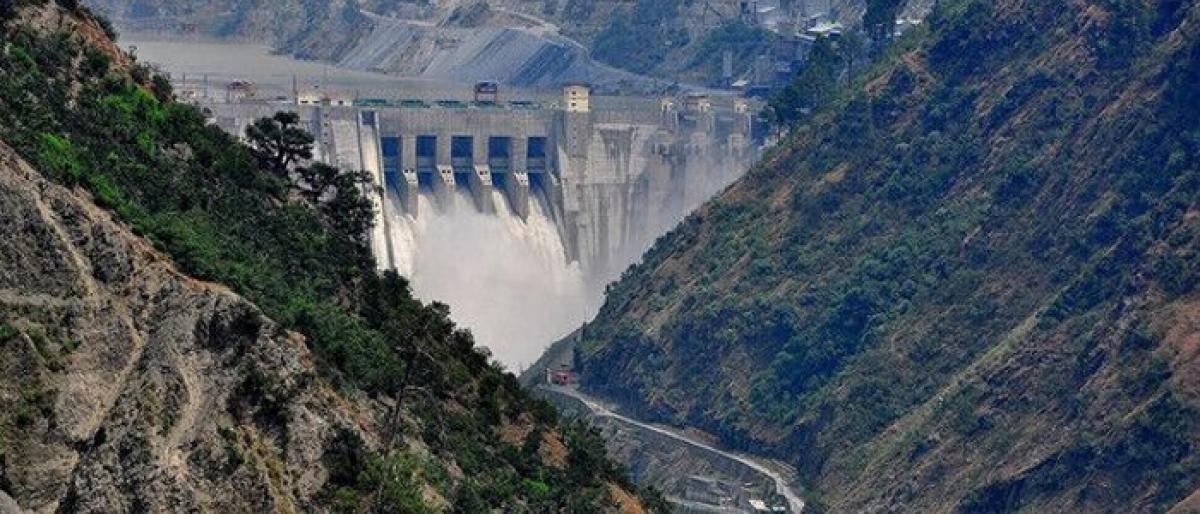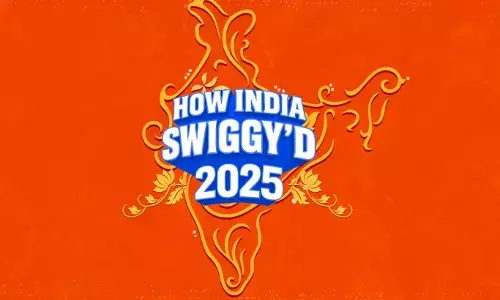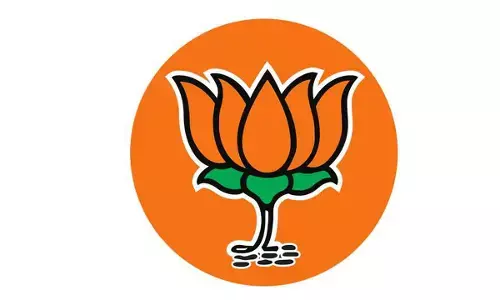Time to renegotiate Indus Waters Treaty

In the recent past in the international arena two different leaders for different reasons have taken similar decisions One was Mr Trump who raised the tariff rates on certain imports from countries like China taking recourse to a provision in the World Trade Organisation to levy such tariffs on national security consideration This was a provision in the agreement long forgotten, not remembered b
In the recent past in the international arena two different leaders for different reasons have taken similar decisions. One was Mr Trump who raised the tariff rates on certain imports from countries like China taking recourse to a provision in the World Trade Organisation to levy such tariffs on national security consideration. This was a provision in the agreement long forgotten, not remembered by any other country, until it was dug out by Trump administration with an intention to safeguard domestic industry.
In another part of the world Mohammad Mahathir, the new Malaysian President during his recent visit to China told the Chinese leadership in no unequivocal terms that he will not abide by the decisions of the previous regime to build some infrastructure projects in Malaysia with Chinese assistance. These projects are part of the Chinese initiative of Belt and Road projects through which they are financing infrastructure projects in a number of countries in Asia and Africa. These are also known as debt trap projects since in most of the cases costs are inflated and projects are selected keeping in view the interests of the Chinese firms not that of the recipient nation.
Works are taken up mostly by Chinese firms financed by the Chinese government in a opaque manner. In fact, China conducts itself more as an imperialist nation rather than as a communist country while manipulating the local regimes and pushing these investments unmindful of relevance of such projects to the recipient nation. When the country is not in a position to service the debt, negotiations are started to take over the asset as is happening in Sri Lanka with reference to Hambantota port which was handed over for 99- year lease by Sri Lanka to China.
What Mr Trump and Mr Mahathir Mohamad have established is that international agreements are not sacrosanct when they’re not in conformity with the interests of the nation. Such obligations arising out of these agreements when they are perceived to be not in the interest of the nation real or imaginary are made sufficient grounds for refusing to honour those Commitments arising out of those agreements. America in fact is the biggest beneficiary of the WTO in terms of protection of its intellectual property rights and opening up of markets of other countries for its service industries like banks and insurance. But still it puts up a face of a nation wronged and went on to unilaterally raise the tariffs. In the case of Malaysia it was actually a case of refusing to honour commitments entered into by previous corrupt regime.
The above two actions of two different governments may give us the necessary support to either scrap or renegotiate the Indus Waters Treaty with Pakistan. Entered into between India and Pakistan in the year 1960 with the World Bank playing the role of a mediator this bilateral treaty is for sharing of Indus Waters and its tributaries. As per the above treaty the division was not in terms of the quantity of water but in terms of rivers themselves the west three rivers of Indus Jhelum and Chenab going to Pakistan and the eastern rivers of Ravi, Beas and Sutlej coming to India. The process of sharing was so agreed out of the total quantity of water from the Indus and its tributaries is to be divided between India and Pakistan in the ratio of 20 :80.
It was signed in the year 1960 by then prime minister of India Jawahar Lal Nehru and President of Pakistan Ayub Khan. The penchant of Jawaharlal Nehru to sacrifice genuine national interests on the altar of personal international fame is well known by now. The same happened with Indus water Treaty as well. In this case the biggest loser was the state of Kashmir in the Indian Union whose interests have been sacrificed to accommodate the interest of the Pakistani with the fond hope that this would have a bearing on the peace in the subcontinent. These expectations are belied in terms of the series of confrontations Pakistan has indulged in since 1960. They seem to believe in a policy of paying us back with blood for water which we so generously given them.
Though genuine requirements of Pakistan need to be accommodated there is no point in sacrificing our interests in the fond hope that such sacrifices would ensure eternal peace in the subcontinent. The treaty brokered by the World Bank is essentially a bilateral treaty and with the nowadays precedents of international agreements being given a go by around the world when it is not in conformity with the national interests perceived or real, it is worthwhile we also take a relook at the treaty to safeguard our interest. In fact, 13 per cent of the water drained into this river system comes from Afghanistan and China who are not parties to the Treaty. The Treaty can be renegotiated making them as parties and any renegotiation of the Treaty will not as most experts say give Pakistan same liberal dispensation which was made available to them in 1960.
Afterall as was remarked by David Lilienthal who played a part in bringing Pakistan and India towards an agreement “no armies with bombs and shellfire could devastate a land so thoroughly as Pakistan could be devastated by the simple expedient of India’s permanently shutting off the source of waters that keeps the fields and people of Pakistan green” . Such is the importance of this treaty to Pakistan.

















